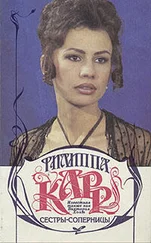So we went into the house and for a short time we forgot Carlotta and her mother.
We dined in the intimate parlor-just the family-and Father talked of his adventures. Trade was becoming more prosperous. The great rivals were the Dutch because they were very commercially minded and were seeking maritime expansion. They were good sailors-as much to be feared as the Spaniards had been a few years back. They were as deadly in a way, for while the Spaniards had never lost sight of the desire to bring Catholicism to the entire world, the Dutch had one objective-maritime supremacy, which would make them the biggest and richest traders in the world; and as the very same ambition was possessed by the English in general and in particular those of the East India Company, the rivalry was intense.
“They want to drive us off the seas,” Father told us. “And we are determined not to be driven. Why people cannot trade in peace has always been a mystery to me. There are riches enough in the world for us all and let the man who finds them first keep them.”
Our mother was in full agreement with my father, and I thought that if everyone in the world were like them it would be a happier place.
My father told us stories of his adventures in strange lands. He made us see palm-fringed islands where the people lived in primitive fashion and rarely saw a white man, how they had been overawed by the sight of the big trading ships and were sometimes hostile. But he always implied that there was no real danger and that he would emerge safe from all his adventures and I fancied that he sometimes colored the stories to give this effect, for the last thing he wanted was to add to our mother’s anxieties. We basked in this atmosphere of contentment and neither Bersaba nor I thought beyond the present; we shut our eyes to the truth that one day he would sail away again. While he was home there must be perfect contentment.
We none of us asked on that first day of reunion when he would be leaving us again and it was the next day before we mentioned Senara’s return. Then a faint frown appeared on his face and I thought uneasily, “He doesn’t like Senara.”
“You knew her well, Father?” I asked.
“Not well,” he replied. “I knew her. She left before your mother and I married. I had met her when I visited the Castle.”
My mother said, “She will come here. She wants to be with me awhile hut I think the Castle has some attraction and she will go back there after visits with us. It was her home. Like myself she was born there.”
“So she will be here,” said my father slowly.
“You would not have me not receive her?” asked my mother, little lights of horror appearing in her eyes. Was it going to be their first disagreement? “My love, if you want her here ... of course you must have her.”
“Dearest Fenn,” said my mother, “she is as my sister.”
“She was not always good to you... to us.”
“Oh, but she is good at heart. She was wild in those days. She acted without thought.
But she was as my sister and I could not turn her away.” My father nodded but I could see that he was uneasy and I wondered what had happened to make him say that Senara had not been good to them.
Bersaba asked her when she was alone with her and she told me that my mother replied, “Oh, she tried to stop your father and me marrying. She was jealous, that was all. She did not want me to go away from her. She was very fond of me. She confessed and then everything was all right. That was all, but your father has not forgotten.” My brother Fennimore wanted to go to sea with my father, but my father thought he should stay at home and look after the estates, but most of all my mother. My parents used to talk about it at length. I would see them in the garden, arm in arm, in earnest conversation, and I guessed what it was about. My brother Fennimore was like them in that he wanted to do the best for the family, but it is not easy to be denied what you really want to do in life.
My mother knew this and she tried to persuade my father to let him go. She was perfectly safe, she declared; she had good servants and Fennimore’s heart was with the Company just as his was.
While my father was home many people came to visit us. There were men in the Company who never went to sea but took part in its management from their offices in England.
Some came from London to see us and those would be days of great excitement. The servants would be busy in the kitchen baking pies of all descriptions-all our old Cornish ones would appear to the delight and amazement of the visitors, who had never heard of taddage pies, which contained prematurely born sucking pig and muggety-the entrails of sheep and calves. My mother wondered whether such food would appeal to the fine folk from London but they seemed to eat it with relish and were not told until afterward what the pies contained. Then, besides our old Cornish dishes, there would be beef, mutton, boar’s head, duck and snipe, partridge, pigeon, and fish like lampreys, sturgeon and pike, with fruitsmulberries, apricots, medlars, and green figs-to follow. My mother was a devoted housewife and herself supervised the making of many of the dishes, so eager was she to welcome all our father’s business colleagues. There came the day when we heard that our father had relented over our brother Fennimore and he was to go to sea with him when he next sailed. Fennimore was going round in a state of quiet pleasure because of this. He was so like our father and he did not shout with joy or say very much but we were all aware of his contentment. A week had passed since our return-a week of meals eaten in the great hall, for there were these constant visitors and we never knew when more would arrive. Most of the rooms in the Priory were now occupied and Bersaba and I recalled that this was how it always had been when our father was home.
“I wonder what Carlotta is doing at Castle Paling?” I said one day. Bersaba answered, “They will not come here until Father has gone. I heard Mother say she would ask them not to, making the excuse that every room was occupied by Father’s business associates.”
Bersaba always seemed to get such information. Once I accused her of eavesdropping and she did not deny it. But I have to admit that I was always glad to receive the information she was able to give.
There was a good deal of talk at the table and we learned that these men from London were disturbed by the influences at work in the country. The King’s popularity was fast waning. He had, it seemed, not the gifts to make him a darling of the public. He was a good and faithful husband-rare in kings-but he did not know how to govern, and his wife, Henrietta Maria, frivolous and strictly Catholic, did nothing to endear herself to the people.
That he had dismissed Parliament and governed without one was an indication of the King’s determination to be accepted as the ruler selected by God. He was implying that he did not need a parliament; that he was quite capable of making laws. The people had accepted so much from him, but it was the general verdict, that they were getting restive and they would not go on in this way.
He was alienating the people not only through religion, but through irresponsible taxation which was a direct threat to property.
One of the main topics was of course Ship Money, of which we had heard so much. Fearful of war with the Spaniards or Dutch or both, Charles had commanded that the main ports supply ships for the defense of England. To build these ships money was needed and Ship Money was invented.
A rumbling protest broke out throughout the land. The Puritans, the Protestants, and the Catholics all felt themselves persecuted and stood against the King; Charles had alienated Scotland when he allowed himself to be crowned in Edinburgh by five bishops in white rochets and copes of gold, a ceremony which was attended by much pomp, for this offended the plain Scots and diverted their sympathy from him. I remembered vividly the conversation at dinner one evening when they talked about the frivolity of the Queen and the King’s growing love for her. My mother thought that it showed goodness in the King and she said that a monarch’s happy family life would be an inspiration to the families of the country. My father smiled at her tenderly and replied, “There have been happy families before this King came to the throne, my love. To have found the ideal companion, to have learned the true secret of living, which is to give happiness to others when happiness will come to the giver unasked, is something which we all may have if we are determined to get it.”
Читать дальше







